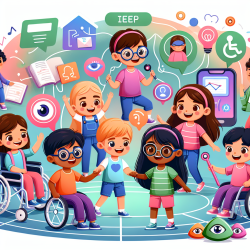Introduction
In the rapidly evolving landscape of education, the role of physical education is being redefined to meet the needs of the 21st century. The research article "Conceptual Physical Education: A Course for the Future" by Charles B. Corbin highlights the transformative potential of Conceptual Physical Education (CPE) in promoting lifelong physical activity and enhancing physical literacy. As educators, embracing CPE can not only improve our teaching methodologies but also inspire students to lead healthier, more active lives.
The Power of Conceptual Physical Education
CPE is an innovative approach that combines physical activity sessions with classroom instruction to teach kinesiology concepts, principles of health-related fitness, and self-management skills. Unlike traditional physical education programs that focus solely on physical activities, CPE integrates text materials and classroom sessions to provide a comprehensive understanding of physical health.
- Promotes Lifelong Physical Activity: CPE has been shown to encourage out-of-school physical activity, fostering a habit of regular exercise that students carry into adulthood.
- Builds Knowledge and Motivation: By teaching the science behind physical fitness, CPE empowers students with the knowledge and motivation to make informed decisions about their health.
- Aligns with Physical Literacy: CPE courses align with physical education standards, ensuring that students develop the necessary skills to achieve physical literacy.
Implementing CPE in Schools
For educators looking to implement CPE, the research suggests several strategies to ensure successful integration:
- Professional Development: Teachers should engage in continuous professional development to stay updated on the latest CPE methodologies and best practices.
- Resource Allocation: Schools should invest in resources such as textbooks, digital materials, and classroom facilities to support CPE programs.
- Curriculum Design: CPE should be integrated into the curriculum as a foundational course, with opportunities for advanced and elective CPE courses.
Encouraging Further Research
While the benefits of CPE are well-documented, ongoing research is essential to further refine and adapt these programs to diverse educational settings. Educators are encouraged to participate in research initiatives, share best practices, and contribute to the growing body of knowledge on CPE.
Conclusion
As we strive to create a more holistic and effective educational experience, embracing Conceptual Physical Education can play a pivotal role in shaping the future of physical education. By focusing on knowledge-based programs, we can inspire students to lead healthier lives and help physical education achieve its potential as a renaissance profession in the 21st century.
To read the original research paper, please follow this link: Conceptual physical education: A course for the future.










